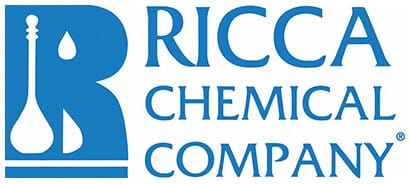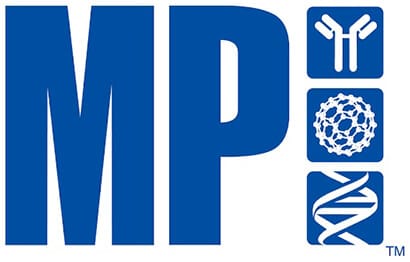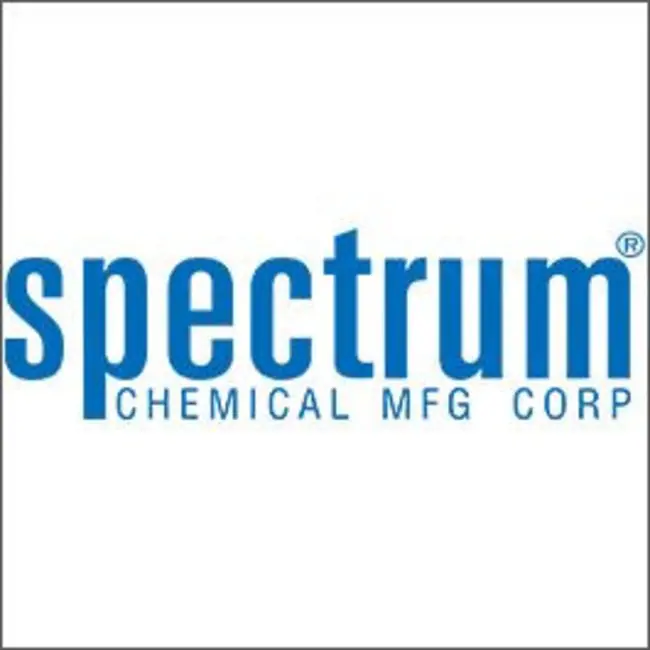Shop
Showing 115851–115900 of 224821 results
-
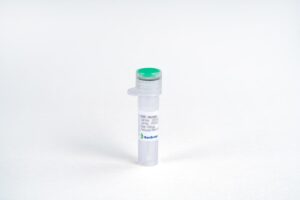
FGF-acidic, Human
$612.38 Add to cart View Product DetailsFibroblast Growth Factor- acidic (FGF-acidic), also known as FGF-1 and endothelial cell growth factor, is a member of the FGF family which currently contain 23 members. FGF acidic and basic, unlike the other members of the family, lack signal peptides and are apparently secreted by mechanisms other than the classical protein secretion pathway. FGF acidic has been detected in large amounts in the brain. Other cells known to express FGF acidic include hepatocytes, vascular smooth muscle cells, CNS neurons, skeletal muscle cells, fibroblasts, keratinocytes, endothelial cells, intestinal columnar epithelium cells and pituitary basophils and acidophils. As with other FGF’s, FGF acidic exhibits considerable species cross reactivity. FGF acidic and FGF basic stimulate the proliferation of all cells of mesodermal origin, and many cells of neuroectodermal, ectodermal and endodermal origin.
-

FGF-acidic, Human
$43.13 Add to cart View Product DetailsFibroblast Growth Factor- acidic (FGF-acidic), also known as FGF-1 and endothelial cell growth factor, is a member of the FGF family which currently contain 23 members. FGF acidic and basic, unlike the other members of the family, lack signal peptides and are apparently secreted by mechanisms other than the classical protein secretion pathway. FGF acidic has been detected in large amounts in the brain. Other cells known to express FGF acidic include hepatocytes, vascular smooth muscle cells, CNS neurons, skeletal muscle cells, fibroblasts, keratinocytes, endothelial cells, intestinal columnar epithelium cells and pituitary basophils and acidophils. As with other FGF’s, FGF acidic exhibits considerable species cross reactivity. FGF acidic and FGF basic stimulate the proliferation of all cells of mesodermal origin, and many cells of neuroectodermal, ectodermal and endodermal origin.
-

FGF-acidic, Human
$86.25 Add to cart View Product DetailsFibroblast Growth Factor- acidic (FGF-acidic), also known as FGF-1 and endothelial cell growth factor, is a member of the FGF family which currently contain 23 members. FGF acidic and basic, unlike the other members of the family, lack signal peptides and are apparently secreted by mechanisms other than the classical protein secretion pathway. FGF acidic has been detected in large amounts in the brain. Other cells known to express FGF acidic include hepatocytes, vascular smooth muscle cells, CNS neurons, skeletal muscle cells, fibroblasts, keratinocytes, endothelial cells, intestinal columnar epithelium cells and pituitary basophils and acidophils. As with other FGF’s, FGF acidic exhibits considerable species cross reactivity. FGF acidic and FGF basic stimulate the proliferation of all cells of mesodermal origin, and many cells of neuroectodermal, ectodermal and endodermal origin.
-
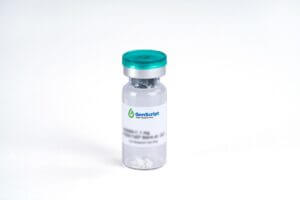
FGF-acidic, Mouse
$612.38 Add to cart View Product DetailsFibroblast Growth Factor- acidic (FGF-acidic) is a mitogen targeting at the endothelial cells, and belongs to the heparin binding FGF family, which contains 22 members. FGF-acidic binds to the receptor family FGFR1-4 in vivo with the assistance of heparin. However, along with FGF -basic, FGF-acidic lacks the signal peptide segment, and thus is not secreted via endoplasmic reticulum (ER) and Golgi bodies. Studies have shown that FGF-acidic is highly regulated, and it is a direct angiogenesis factor. If unregulated, angiogenesis could contribute to several diseases including arthritis, diabetes, ocular neovascularization, and especially tumors. Therefore, FGF-acidic is treated as a potential oncogene, and its overexpression is correlated tightly with several cancers.
-
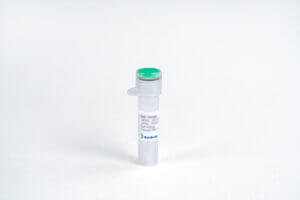
FGF-acidic, Mouse
$43.13 Add to cart View Product DetailsFibroblast Growth Factor- acidic (FGF-acidic) is a mitogen targeting at the endothelial cells, and belongs to the heparin binding FGF family, which contains 22 members. FGF-acidic binds to the receptor family FGFR1-4 in vivo with the assistance of heparin. However, along with FGF -basic, FGF-acidic lacks the signal peptide segment, and thus is not secreted via endoplasmic reticulum (ER) and Golgi bodies. Studies have shown that FGF-acidic is highly regulated, and it is a direct angiogenesis factor. If unregulated, angiogenesis could contribute to several diseases including arthritis, diabetes, ocular neovascularization, and especially tumors. Therefore, FGF-acidic is treated as a potential oncogene, and its overexpression is correlated tightly with several cancers.
-

FGF-acidic, Mouse
$86.25 Add to cart View Product DetailsFibroblast Growth Factor- acidic (FGF-acidic) is a mitogen targeting at the endothelial cells, and belongs to the heparin binding FGF family, which contains 22 members. FGF-acidic binds to the receptor family FGFR1-4 in vivo with the assistance of heparin. However, along with FGF -basic, FGF-acidic lacks the signal peptide segment, and thus is not secreted via endoplasmic reticulum (ER) and Golgi bodies. Studies have shown that FGF-acidic is highly regulated, and it is a direct angiogenesis factor. If unregulated, angiogenesis could contribute to several diseases including arthritis, diabetes, ocular neovascularization, and especially tumors. Therefore, FGF-acidic is treated as a potential oncogene, and its overexpression is correlated tightly with several cancers.
-

FGF-basic (145aa), Human
$543.38 Add to cart View Product DetailsFibroblast Growth Factor-basic (FGF-basic), also known as FGF-2, is a pleiotropic cytokine and one of the prototypic members of the heparin-binding FGF family. Like other FGF family members, FGF-basic has the β trefoil structure. In vivo, FGF-basic is produced by a variety of cells, including cardiomycotes, fibroblasts, and vascular cells. FGF-basic regulates a variety of processes including cell proliferation, differentiation, survival, adhesion, motility, apoptosis, limb formation and wound healing. FGF-basic can be tumorigenic due to its role in angiogenesis and blood vessel remodeling. The angiogenic effects of FGF-basic can produce beneficial cardioprotection during acute heart injury.
-

FGF-basic (145aa), Human
$43.13 Add to cart View Product DetailsFibroblast Growth Factor-basic (FGF-basic), also known as FGF-2, is a pleiotropic cytokine and one of the prototypic members of the heparin-binding FGF family. Like other FGF family members, FGF-basic has the β trefoil structure. In vivo, FGF-basic is produced by a variety of cells, including cardiomycotes, fibroblasts, and vascular cells. FGF-basic regulates a variety of processes including cell proliferation, differentiation, survival, adhesion, motility, apoptosis, limb formation and wound healing. FGF-basic can be tumorigenic due to its role in angiogenesis and blood vessel remodeling. The angiogenic effects of FGF-basic can produce beneficial cardioprotection during acute heart injury.
-

FGF-basic (145aa), Human
$90.56 Add to cart View Product DetailsFibroblast Growth Factor-basic (FGF-basic), also known as FGF-2, is a pleiotropic cytokine and one of the prototypic members of the heparin-binding FGF family. Like other FGF family members, FGF-basic has the β trefoil structure. In vivo, FGF-basic is produced by a variety of cells, including cardiomycotes, fibroblasts, and vascular cells. FGF-basic regulates a variety of processes including cell proliferation, differentiation, survival, adhesion, motility, apoptosis, limb formation and wound healing. FGF-basic can be tumorigenic due to its role in angiogenesis and blood vessel remodeling. The angiogenic effects of FGF-basic can produce beneficial cardioprotection during acute heart injury.
-

FGF-basic (146aa), Human
$586.50 Add to cart View Product DetailsFibroblast Growth Factor-basic (FGF-basic), also known as FGF-2, is a pleiotropic cytokine and one of the prototypic members of the heparin-binding FGF family. Like other FGF family members, FGF-basic has the β trefoil structure. In vivo, FGF-basic is produced by a variety of cells, including cardiomycotes, fibroblasts, and vascular cells. FGF-basic regulates a variety of processes including cell proliferation, differentiation, survival, adhesion, motility, apoptosis, limb formation and wound healing. FGF-basic can be tumorigenic due to its role in angiogenesis and blood vessel remodeling. The angiogenic effects of FGF-basic can produce beneficial cardioprotection during acute heart injury.
-

FGF-basic (146aa), Human
$43.13 Add to cart View Product DetailsFibroblast Growth Factor-basic (FGF-basic), also known as FGF-2, is a pleiotropic cytokine and one of the prototypic members of the heparin-binding FGF family. Like other FGF family members, FGF-basic has the β trefoil structure. In vivo, FGF-basic is produced by a variety of cells, including cardiomycotes, fibroblasts, and vascular cells. FGF-basic regulates a variety of processes including cell proliferation, differentiation, survival, adhesion, motility, apoptosis, limb formation and wound healing. FGF-basic can be tumorigenic due to its role in angiogenesis and blood vessel remodeling. The angiogenic effects of FGF-basic can produce beneficial cardioprotection during acute heart injury.
-

FGF-basic (146aa), Human
$86.25 Add to cart View Product DetailsFibroblast Growth Factor-basic (FGF-basic), also known as FGF-2, is a pleiotropic cytokine and one of the prototypic members of the heparin-binding FGF family. Like other FGF family members, FGF-basic has the β trefoil structure. In vivo, FGF-basic is produced by a variety of cells, including cardiomycotes, fibroblasts, and vascular cells. FGF-basic regulates a variety of processes including cell proliferation, differentiation, survival, adhesion, motility, apoptosis, limb formation and wound healing. FGF-basic can be tumorigenic due to its role in angiogenesis and blood vessel remodeling. The angiogenic effects of FGF-basic can produce beneficial cardioprotection during acute heart injury.
-

FGF-basic (154aa), Human
$612.38 Add to cart View Product DetailsFibroblast Growth Factor-basic (FGF-basic), also known as FGF-2, is a pleiotropic cytokine and one of the prototypic members of the heparin-binding FGF family. Like other FGF family members, bFGF has the β trefoil structure. In vivo, bFGF is produced by a variety of cells, including cardiomycotes, fibroblasts, and vascular cells. bFGF regulates a variety of processes including cell proliferation, differentiation, survival, adhesion, motility, apoptosis, limb formation and wound healing. bFGF can be tumorigenic due to its role in angiogenesis and blood vessel remodeling. The angiogenic effects of bFGF can produce beneficial cardioprotection during acute heart injury.
-

FGF-basic (154aa), Human
$43.13 Add to cart View Product DetailsFibroblast Growth Factor-basic (FGF-basic), also known as FGF-2, is a pleiotropic cytokine and one of the prototypic members of the heparin-binding FGF family. Like other FGF family members, bFGF has the β trefoil structure. In vivo, bFGF is produced by a variety of cells, including cardiomycotes, fibroblasts, and vascular cells. bFGF regulates a variety of processes including cell proliferation, differentiation, survival, adhesion, motility, apoptosis, limb formation and wound healing. bFGF can be tumorigenic due to its role in angiogenesis and blood vessel remodeling. The angiogenic effects of bFGF can produce beneficial cardioprotection during acute heart injury.
-

FGF-basic (154aa), Human
$86.25 Add to cart View Product DetailsFibroblast Growth Factor-basic (FGF-basic), also known as FGF-2, is a pleiotropic cytokine and one of the prototypic members of the heparin-binding FGF family. Like other FGF family members, bFGF has the β trefoil structure. In vivo, bFGF is produced by a variety of cells, including cardiomycotes, fibroblasts, and vascular cells. bFGF regulates a variety of processes including cell proliferation, differentiation, survival, adhesion, motility, apoptosis, limb formation and wound healing. bFGF can be tumorigenic due to its role in angiogenesis and blood vessel remodeling. The angiogenic effects of bFGF can produce beneficial cardioprotection during acute heart injury.
-

FGF-basic, Bovine
$612.38 Add to cart View Product DetailsFibroblast Growth Factor-basic (FGF-basic), also known as FGF-2, is a pleiotropic cytokine and one of the prototypic members of the heparin-binding FGF family. Like other FGF family members, FGF-basic has the β trefoil structure. In vivo, FGF-basic is produced by a variety of cells, including cardiomycotes, fibroblasts, and vascular cells. FGF-basic regulates a variety of processes including cell proliferation, differentiation, survival, adhesion, motility, apoptosis, limb formation and wound healing. FGF-basic can be tumorigenic due to its role in angiogenesis and blood vessel remodeling. The angiogenic effects of FGF-basic can produce beneficial cardioprotection during acute heart injury.
-

FGF-basic, Bovine
$43.13 Add to cart View Product DetailsFibroblast Growth Factor-basic (FGF-basic), also known as FGF-2, is a pleiotropic cytokine and one of the prototypic members of the heparin-binding FGF family. Like other FGF family members, FGF-basic has the β trefoil structure. In vivo, FGF-basic is produced by a variety of cells, including cardiomycotes, fibroblasts, and vascular cells. FGF-basic regulates a variety of processes including cell proliferation, differentiation, survival, adhesion, motility, apoptosis, limb formation and wound healing. FGF-basic can be tumorigenic due to its role in angiogenesis and blood vessel remodeling. The angiogenic effects of FGF-basic can produce beneficial cardioprotection during acute heart injury.
-

FGF-basic, Bovine
$86.25 Add to cart View Product DetailsFibroblast Growth Factor-basic (FGF-basic), also known as FGF-2, is a pleiotropic cytokine and one of the prototypic members of the heparin-binding FGF family. Like other FGF family members, FGF-basic has the β trefoil structure. In vivo, FGF-basic is produced by a variety of cells, including cardiomycotes, fibroblasts, and vascular cells. FGF-basic regulates a variety of processes including cell proliferation, differentiation, survival, adhesion, motility, apoptosis, limb formation and wound healing. FGF-basic can be tumorigenic due to its role in angiogenesis and blood vessel remodeling. The angiogenic effects of FGF-basic can produce beneficial cardioprotection during acute heart injury.
-
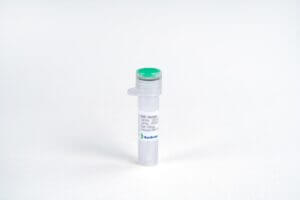
FGF-basic, Mouse
$612.38 Add to cart View Product DetailsFibroblast Growth Factor-basic (FGF-basic), also known as HBGF-2, is a non-glycosylated heparin-binding growth factor that belongs to the FGF family. FGF-basic is present in basement membranes and in the subendothelial extracellular matrix of blood vessels. FGF-basic signals through FGFR1, 2, 3 and 4 that plays an important role in the regulation of cell survival, cell division, angiogenesis, cell differentiation and cell migration.
-

FGF-basic, Mouse
$43.13 Add to cart View Product DetailsFibroblast Growth Factor-basic (FGF-basic), also known as HBGF-2, is a non-glycosylated heparin-binding growth factor that belongs to the FGF family. FGF-basic is present in basement membranes and in the subendothelial extracellular matrix of blood vessels. FGF-basic signals through FGFR1, 2, 3 and 4 that plays an important role in the regulation of cell survival, cell division, angiogenesis, cell differentiation and cell migration.
-

FGF-basic, Mouse
$86.25 Add to cart View Product DetailsFibroblast Growth Factor-basic (FGF-basic), also known as HBGF-2, is a non-glycosylated heparin-binding growth factor that belongs to the FGF family. FGF-basic is present in basement membranes and in the subendothelial extracellular matrix of blood vessels. FGF-basic signals through FGFR1, 2, 3 and 4 that plays an important role in the regulation of cell survival, cell division, angiogenesis, cell differentiation and cell migration.
-
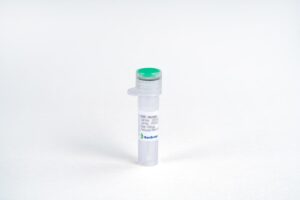
FGF-basic, Rat
$612.38 Add to cart View Product DetailsFibroblast Growth Factor-basic (FGF-basic), also known as FGF-2, is a pleiotropic cytokine and one of the prototypic members of the heparin-binding FGF family. Like other FGF family members, FGF-basic has the β trefoil structure. In vivo, FGF-basic is produced by a variety of cells, including cardiomycotes, fibroblasts, and vascular cells. FGF-basic regulates a variety of processes including cell proliferation, differentiation, survival, adhesion, motility, apoptosis, limb formation and wound healing. FGF-basic can be tumorigenic due to its role in angiogenesis and blood vessel remodeling. The angiogenic effects of FGF-basic can produce beneficial cardioprotection during acute heart injury.
-

FGF-basic, Rat
$43.13 Add to cart View Product DetailsFibroblast Growth Factor-basic (FGF-basic), also known as FGF-2, is a pleiotropic cytokine and one of the prototypic members of the heparin-binding FGF family. Like other FGF family members, FGF-basic has the β trefoil structure. In vivo, FGF-basic is produced by a variety of cells, including cardiomycotes, fibroblasts, and vascular cells. FGF-basic regulates a variety of processes including cell proliferation, differentiation, survival, adhesion, motility, apoptosis, limb formation and wound healing. FGF-basic can be tumorigenic due to its role in angiogenesis and blood vessel remodeling. The angiogenic effects of FGF-basic can produce beneficial cardioprotection during acute heart injury.
-

FGF-basic, Rat
$86.25 Add to cart View Product DetailsFibroblast Growth Factor-basic (FGF-basic), also known as FGF-2, is a pleiotropic cytokine and one of the prototypic members of the heparin-binding FGF family. Like other FGF family members, FGF-basic has the β trefoil structure. In vivo, FGF-basic is produced by a variety of cells, including cardiomycotes, fibroblasts, and vascular cells. FGF-basic regulates a variety of processes including cell proliferation, differentiation, survival, adhesion, motility, apoptosis, limb formation and wound healing. FGF-basic can be tumorigenic due to its role in angiogenesis and blood vessel remodeling. The angiogenic effects of FGF-basic can produce beneficial cardioprotection during acute heart injury.
-

FGF-basic, Salmon
$1,138.50 Add to cart View Product DetailsFibroblast Growth Factor-basic (FGF-basic), also known as FGF-2, is a pleiotropic cytokine and one of the prototypic members of the heparin-binding FGF family. Like other FGF family members, FGF-basic has the β trefoil structure. In vivo, FGF-basic is produced by a variety of cells, including cardiomyocytes, fibroblasts, and vascular cells. FGF-basic regulates a variety of processes including cell proliferation, differentiation, survival, adhesion, motility, apoptosis, limb formation and wound healing. FGF-basic can be tumorigenic due to its role in angiogenesis and blood vessel remodeling. The angiogenic effects of FGF-basic can produce beneficial cardioprotection during acute heart injury.
-

FGF-basic, Salmon
$63.83 Add to cart View Product DetailsFibroblast Growth Factor-basic (FGF-basic), also known as FGF-2, is a pleiotropic cytokine and one of the prototypic members of the heparin-binding FGF family. Like other FGF family members, FGF-basic has the β trefoil structure. In vivo, FGF-basic is produced by a variety of cells, including cardiomyocytes, fibroblasts, and vascular cells. FGF-basic regulates a variety of processes including cell proliferation, differentiation, survival, adhesion, motility, apoptosis, limb formation and wound healing. FGF-basic can be tumorigenic due to its role in angiogenesis and blood vessel remodeling. The angiogenic effects of FGF-basic can produce beneficial cardioprotection during acute heart injury.
-

FGF-basic, Salmon
$232.88 Add to cart View Product DetailsFibroblast Growth Factor-basic (FGF-basic), also known as FGF-2, is a pleiotropic cytokine and one of the prototypic members of the heparin-binding FGF family. Like other FGF family members, FGF-basic has the β trefoil structure. In vivo, FGF-basic is produced by a variety of cells, including cardiomyocytes, fibroblasts, and vascular cells. FGF-basic regulates a variety of processes including cell proliferation, differentiation, survival, adhesion, motility, apoptosis, limb formation and wound healing. FGF-basic can be tumorigenic due to its role in angiogenesis and blood vessel remodeling. The angiogenic effects of FGF-basic can produce beneficial cardioprotection during acute heart injury.
-

FGF-R2β Fc Chimera, Mouse
$1,293.75 Add to cart View Product DetailsFibroblast growth factor receptor 2 (FGFR2) also known as CD332 is a receptor for fibroblast growth factor and it has important roles in embryonic development and tissue repair, especially bone and blood vessels. FGFR2 has two naturally occurring isoforms, FGFR2IIIb and FGFR2IIIc, created by splicing of the third immunoglobulin-like domain. FGFR2IIIb is predominantly found in ectoderm derived tissues and endothelial organ lining. Like the other members of the fibroblast growth factor receptor family, these receptors signal by binding to their ligand and dimerisation (pairing of receptors), which causes the tyrosine kinase domains to initiate a cascade of intracellular signals. On a molecular level these signals mediate cell division, growth and differentiation.
-

FGF-R2β Fc Chimera, Mouse
$189.75 Add to cart View Product DetailsFibroblast growth factor receptor 2 (FGFR2) also known as CD332 is a receptor for fibroblast growth factor and it has important roles in embryonic development and tissue repair, especially bone and blood vessels. FGFR2 has two naturally occurring isoforms, FGFR2IIIb and FGFR2IIIc, created by splicing of the third immunoglobulin-like domain. FGFR2IIIb is predominantly found in ectoderm derived tissues and endothelial organ lining. Like the other members of the fibroblast growth factor receptor family, these receptors signal by binding to their ligand and dimerisation (pairing of receptors), which causes the tyrosine kinase domains to initiate a cascade of intracellular signals. On a molecular level these signals mediate cell division, growth and differentiation.
-

FGF-R2β Fc Chimera, Mouse
$137.14 Add to cart View Product DetailsFibroblast growth factor receptor 2 (FGFR2) also known as CD332 is a receptor for fibroblast growth factor and it has important roles in embryonic development and tissue repair, especially bone and blood vessels. FGFR2 has two naturally occurring isoforms, FGFR2IIIb and FGFR2IIIc, created by splicing of the third immunoglobulin-like domain. FGFR2IIIb is predominantly found in ectoderm derived tissues and endothelial organ lining. Like the other members of the fibroblast growth factor receptor family, these receptors signal by binding to their ligand and dimerisation (pairing of receptors), which causes the tyrosine kinase domains to initiate a cascade of intracellular signals. On a molecular level these signals mediate cell division, growth and differentiation.
-

FGF-R3(ⅢC) Fc Chimera, Mouse
$1,293.75 Add to cart View Product DetailsFibroblast growth factor receptor 3(FGFR3) also known as CD333 (cluster of differentiation 333) is a member of the fibroblast growth factor receptor family, where amino acid sequence is highly conserved between members and throughout evolution. The FGFR3 gene produces various forms of the FGFR3 protein and the location varies depending on the isoform of the FGFR3 protein. Since the different forms are found within different tissues, the protein is responsible for multiple growth factor interactions. Gain of function mutations in FGFR3 inhibits chondrocyte proliferation and underlies achondroplasia and hypochondroplasia.
-

FGF-R3(ⅢC) Fc Chimera, Mouse
$137.14 Add to cart View Product DetailsFibroblast growth factor receptor 3(FGFR3) also known as CD333 (cluster of differentiation 333) is a member of the fibroblast growth factor receptor family, where amino acid sequence is highly conserved between members and throughout evolution. The FGFR3 gene produces various forms of the FGFR3 protein and the location varies depending on the isoform of the FGFR3 protein. Since the different forms are found within different tissues, the protein is responsible for multiple growth factor interactions. Gain of function mutations in FGFR3 inhibits chondrocyte proliferation and underlies achondroplasia and hypochondroplasia.
-

FGF-R4 Fc Chimera, Mouse
$1,293.75 Add to cart View Product DetailsFibroblast growth factor receptor 4(FGFR4) also known as CD334 (cluster of differentiation 334) is a member of the fibroblast growth factor receptor family, where amino acid sequence is highly conserved between members and throughout evolution. A full-length representative protein would consist of an extracellular region, composed of three immunoglobulin-like domains, a single hydrophobic membrane-spanning segment and a cytoplasmic tyrosine kinase domain. The extracellular portion of the protein interacts with fibroblast growth factors, setting in motion a cascade of downstream signals, ultimately influencing mitogenesis and differentiation.
-

FGF-R4 Fc Chimera, Mouse
$189.75 Add to cart View Product DetailsFibroblast growth factor receptor 4(FGFR4) also known as CD334 (cluster of differentiation 334) is a member of the fibroblast growth factor receptor family, where amino acid sequence is highly conserved between members and throughout evolution. A full-length representative protein would consist of an extracellular region, composed of three immunoglobulin-like domains, a single hydrophobic membrane-spanning segment and a cytoplasmic tyrosine kinase domain. The extracellular portion of the protein interacts with fibroblast growth factors, setting in motion a cascade of downstream signals, ultimately influencing mitogenesis and differentiation.
-

FGF1 Rabbit mAb
$264.04 Add to cart View Product DetailsMonoclonal Antibodies
-

FGF1 Rabbit mAb
$264.04 Add to cart View Product DetailsMonoclonal Antibodies
-

FGF1 Rabbit mAb
$103.04 Add to cart View Product DetailsMonoclonal Antibodies
-

FGF1 Rabbit mAb
$103.04 Add to cart View Product DetailsMonoclonal Antibodies
-

FGF1 Rabbit mAb
$103.04 Add to cart View Product DetailsMonoclonal Antibodies
-

FGF1 Rabbit mAb
$264.04 Add to cart View Product DetailsMonoclonal Antibodies
-

FGF1 Rabbit pAb
$239.89 Add to cart View Product DetailsPolyclonal Antibodies
-

FGF1 Rabbit pAb
$239.89 Add to cart View Product DetailsPolyclonal Antibodies
-

FGF1 Rabbit pAb
$86.94 Add to cart View Product DetailsPolyclonal Antibodies
-

FGF1 Rabbit pAb
$86.94 Add to cart View Product DetailsPolyclonal Antibodies
-

FGF1 Rabbit PolymAb®
$296.24 Add to cart View Product DetailsMonoclonal Antibodies
-

FGF1 Rabbit PolymAb®
$119.14 Add to cart View Product DetailsMonoclonal Antibodies
-

FGF1 Rabbit PolymAb®
$296.24 Add to cart View Product DetailsMonoclonal Antibodies
-

FGF1 Rabbit PolymAb®
$119.14 Add to cart View Product DetailsMonoclonal Antibodies
-
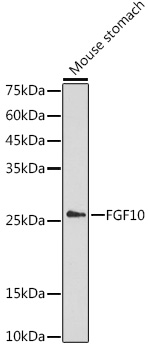
FGF10 Rabbit pAb
$239.89 Add to cart View Product DetailsPolyclonal Antibodies
-

FGF10 Rabbit pAb
$86.94 Add to cart View Product DetailsPolyclonal Antibodies


